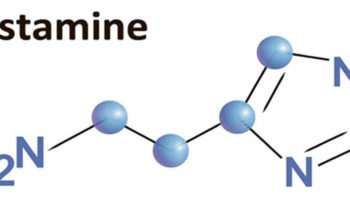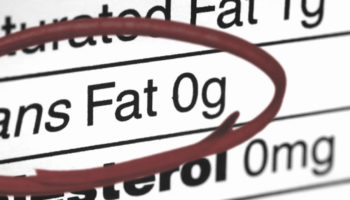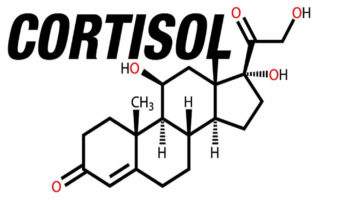Contents
Alkaline Diet
Much has been written in the lay literature as well as many online sites expounding on the benefits of the alkaline diet. This post is an attempt to balance the evidence that is found in the scientific literature.
Life on earth depends on appropriate pH levels in and around living organisms and cells. Human life requires a tightly controlled pH level in the serum of about 7.4 (a slightly alkaline range of 7.35 to 7.45) to survive 1.
When it comes to the pH and net acid load in the human diet, there has been considerable change from the hunter gather civilization to the present. With the agricultural revolution (last 10,000 years) and even more recently with industrialization (last 200 years), there has been an decrease in potassium (K) compared to sodium (Na) and an increase in chloride compared to bicarbonate found in the diet. The ratio of potassium to sodium has reversed, K/Na previously was 10 to 1 whereas the modern diet has a ratio of 1 to 3.
It is generally accepted that agricultural humans today have a diet poor in magnesium and potassium as well as fiber and rich in saturated fat, simple sugars, sodium, and chloride as compared to the preagricultural period. This results in a diet that may induce metabolic acidosis which is mismatched to the genetically determined nutritional requirements.
With aging, there is a gradual loss of renal acid-base regulatory function and a resultant increase in diet-induced metabolic acidosis while on the modern diet. A low-carbohydrate, high-protein diet with its increased acid load results in very little change in blood chemistry, and pH, but results in many changes in urinary chemistry.
The human body has an amazing ability to maintain a steady pH in the blood with the main compensatory mechanisms being renal and respiratory. Many of the membranes in our body require an acid pH to protect us and to help us digest food. It has been suggested that an alkaline diet may prevent a number of diseases and result in significant health benefits.
Looking at the clinical research, there does not seem to be enough evidence that milk or cheese may be as detrimental as suggested since phosphate does benefit bone health and result in a positive calcium balance. However, another mechanism for the alkaline diet to benefit bone health may be the increase in growth hormone and resultant increase in osteocalcin. There is some evidence that the K/Na ratio does matter and that the significant amount of salt in our diet is detrimental. Even some governments are demanding that the food industry reduce the salt load in our diet. High-protein diets may also affect bone health but some protein is also needed for good bone health. Muscle wasting however seems to be reduced with an alkaline diet and back pain may benefit from this as well. An alkaline environment may improve the efficacy of some chemotherapy agents but not others.
The Role of pH in Various Cells, Organs, and Membranes
The pH in our body may vary considerably from one area to another with the highest acidity in the stomach (pH of 1.35 to 3.5) to aid in digestion and protect against opportunistic microbial organisms. But even in the stomach, the layer just outside the epithelium is quite basic to prevent mucosal injury.
The skin is quite acidic (pH 4–6.5) to provide an acid mantle as a protective barrier to the environment against microbial overgrowth. There is a gradient from the outer horny layer (pH 4) to the basal layer (pH 6.9). This is also seen in the vagina where a pH of less than 4.7 protects against microbial overgrowth.
The urine may have a variable pH from acid to alkaline depending on the need for balancing the internal environment. Foods can be categorized by the potential renal acid loads.
- Fruits, vegetables, fruit juices, potatoes, and alkali-rich and low phosphorus beverages (red and white wine, mineral soda waters) having a negative acid load.
- Whereas, grain products, meats, dairy products, fish, and alkali poor and low phosphorus beverages (e.g., pale beers, cocoa) have relatively high acid loads.
Proponents of the Alkaline Diet say that when we load up on excess amounts of protein, sugar, caffeine and other highly processed foods, our pH levels are thrown off track, our bodies become more acidic, and that can lead to weight gain and disease. The remedy, they say ? Eat fresh vegetables, fresh fruit and other “alkaline-promoting foods” such as soy products, legumes, and certain nuts and grains. “Acid-promoting foods”, which include meat, fish, poultry, dairy products, processed foods, white sugar, white flour, and caffeine, are discouraged.
Because alkaline promoting foods has a higher pH level than does acid promoting foods, proponents say that it can neutralize acid in your bloodstream, boost your metabolism and help your body absorb nutrients more effectively. Some even say that alkaline promoting foods can help prevent disease and slow the aging process. Researchers haven’t verified these claims.
Moreover there is a major flaw with this premise: Our bodies maintain their pH balance regardless of what we eat ! In fact, the body has several mechanisms to ensure that pH levels are highly controlled at different specific levels. For example, the stomach has a pH ranging from 1.35-3.5. It must be acidic to aid in digestion. Our blood must always be slightly alkaline, with a pH of 7.35 to 7.45.
Despite this, many of those following an alkaline plan insist on testing the pH of their urine multiple times per day to make sure that their bodies aren’t too acidic. This is a waste of both time and money. While diet and other metabolic processes can affect the pH level of your urine, what you eat does not determine your blood’s pH level. And the pH of your urine has no effect on weight loss and no correlation with the risk of cancer or inflammation-related medical conditions.
The Alkaline Diet: Is There Evidence That an Alkaline pH Diet Benefits Health ?
There is some good news for fans of alkaline eating. The Alkaline Diet is a plant-based and discourages added sugar, so it may help your weight and health, although not because of the pH. People who eat balanced, plant-based diets tend to have lower risks of chronic diseases like high blood pressure and diabetes. There is also research indicating that vegetarian diets may lead to lower risk for some types of cancer. However it is not clear yet if these lower cancer rates are due to diet alone, or other lifestyle factors that often go in tandem with plant-based diets (like not smoking).
As for weight, a diet rich in whole grains and fruits and veggies, and low in processed foods may be a good way to get or stay slim, however you’ll still need to pay attention to portion sizes, total calorie intake and exercise regularly.
- Chronic Acidosis and Bone Disease
There is online information promoting an alkaline diet for bone health as well as a number of books. However, a recent systematic review of the literature looking for evidence supporting the alkaline diet for bone health found no protective role of dietary acid load in osteoporosis 2.
There is evidence that in healthy humans the increased sodium in the diet can predict the degree of hyperchloremic metabolic acidosis when consuming a net acid producing diet 3. As well, there is evidence that there are adverse effects of sodium chloride in the aging population. A high sodium diet will exacerbate disuse-induced bone and muscle loss during immobilization by increasing bone resorption and protein wasting 4. Excess dietary sodium has been shown to result in hypertension and osteoporosis in women 5, 6. As well, dietary potassium which is lacking in the modern diet would modulate pressor and hypercalciuric effects of excess of sodium chloride 7.
Excess dietary protein with high acid renal load may decrease bone density if not buffered by ingestion of supplements or foods that are alkali rich 8. However, adequate protein is necessary for prevention of osteoporosis and sarcopenia; therefore, increasing the amount of fruit and vegetables may be necessary rather than reducing protein 9.
- Alkaline Diets and Muscle
As we age, there is a loss of muscle mass, which may predispose to falls and fractures. A three-year study looking at a diet rich in potassium, such as fruits and vegetables, as well as a reduced acid load, resulted in preservation of muscle mass in older men and women 10. Conditions such as chronic renal failure that result in chronic metabolic acidosis result in accelerated breakdown in skeletal muscle 11. Correction of acidosis may preserve muscle mass in conditions where muscle wasting is common such as diabetic ketosis, trauma, sepsis, chronic obstructive lung disease, and renal failure 12. In situations that result in acute acidosis, supplementing younger patients with sodium bicarbonate prior to exhaustive exercise resulted in significantly less acidosis in the blood than those that were not supplemented with sodium bicarbonate 13.
- Alkaline Supplementation and Growth Hormone
It has long been known that severe forms of metabolic acidosis in children, such as renal tubular acidosis, are associated with low levels of growth hormone with resultant short stature. Correction of the acidosis with bicarbonate 14 or potassium citrate 15 increases growth hormone significantly and improved growth. The use of enough potassium bicarbonate in the diet to neutralize the daily net acid load in postmenopausal women resulted in a significant increase in growth hormone and resultant osteocalcin 16. Improving growth hormone levels may improve quality of life, reduce cardiovascular risk factors, improve body composition, and even improve memory and cognition 17. As well this results in a reduction of urinary calcium loss equivalent to 5% of bone calcium content over a period of 3 years 18.
- Alkaline Diet and Back Pain
There is some evidence that chronic low back pain improves with the supplementation of alkaline minerals 19. With supplementation there was a slight but significant increase in blood pH and intracellular magnesium. Ensuring that there is enough intracellular magnesium allows for the proper function of enzyme systems and also allows for activation of vitamin D 20. This in turn has been shown to improve back pain 21.
- Alkalinity and Chemotherapy
The effectiveness of chemotherapeutic agents is markedly influenced by pH. Numerous agents such as epirubicin and adriamycin require an alkaline media to be more effective. Others, such as cisplatin, mitomycin C, and thiotepa, are more cytotoxic in an acid media 22. Cell death correlates with acidosis and intracellular pH shifts higher (more alkaline) after chemotherapy may reflect response to chemotherapy 23. It has been suggested that inducing metabolic alkalosis may be useful in enhancing some treatment regimes by using sodium bicarbonate, carbicab, and furosemide 24. Extracellular alkalinization by using bicarbonate may result in improvements in therapeutic effectiveness 25. There is no scientific literature establishing the benefit of an alkaline diet for the prevention of cancer at this time.
Conclusion
Alkaline diets result in a more alkaline urine pH and may result in reduced calcium in the urine, however, as seen in some recent reports, this may not reflect total calcium balance because of other buffers such as phosphate. There is no substantial evidence that this improves bone health or protects from osteoporosis.
Alkaline diets may result in a number of health benefits as outlined below 1:
- Increased fruits and vegetables in an alkaline diet would improve the K/Na ratio and may benefit bone health, reduce muscle wasting, as well as mitigate other chronic diseases such as hypertension and strokes. There is some evidence that the K/Na ratio does matter and that the significant amount of salt in our diet is detrimental.
- The resultant increase in growth hormone with an alkaline diet may improve many outcomes from cardiovascular health to memory and cognition.
- An increase in intracellular magnesium, which is required for the function of many enzyme systems, is another added benefit of the alkaline diet. Available magnesium, which is required to activate vitamin D, would result in numerous added benefits in the vitamin D apocrine/exocrine systems.
- Alkalinity may result in added benefit for some chemotherapeutic agents that require a higher pH.
From the evidence outlined above, it would be prudent to consider an alkaline diet to reduce morbidity and mortality of chronic disease that are plaguing our aging population. One of the first considerations in an alkaline diet, which includes more fruits and vegetables, is to know what type of soil they were grown in since this may significantly influence the mineral content. At this time, there are limited scientific studies in this area, and many more studies are indicated in regards to muscle effects, growth hormone, and interaction with vitamin D.
- J Environ Public Health. 2012; 2012: 727630. Published online 2011 Oct 12. doi: 10.1155/2012/727630. The Alkaline Diet: Is There Evidence That an Alkaline pH Diet Benefits Health ? – https://www.ncbi.nlm.nih.gov/pmc/articles/PMC3195546/[↩][↩]
- Fenton TR, Tough SC, Lyon AW, Eliasziw M, Hanley DA. Causal assessment of dietary acid load and bone disease: a systematic review & meta-analysis applying Hill’s epidemiologic criteria for causality. Nutrition Journal. 2011;10(1, article 41). https://www.ncbi.nlm.nih.gov/pmc/articles/PMC3114717/[↩]
- Frassetto LA, Morris RC, Jr., Sebastian A. Dietary sodium chloride intake independently predicts the degree of hyperchloremic metabolic acidosis in healthy humans consuming a net acid-producing diet. American Journal of Physiology—Renal Physiology. 2007;293(2):F521–F525. https://www.ncbi.nlm.nih.gov/pubmed/17522265[↩]
- Frings-Meuthen P, Buehlmeier J, Baecker N, et al. High sodium chloride intake exacerbates immobilization-induced bone resorption and protein losses. Journal of Applied Physiology. 2011;111(2):537–542. https://www.ncbi.nlm.nih.gov/pubmed/21596917[↩]
- Cappuccio FP, Meilahn E, Zmuda JM, Cauley JA. High blood pressure and bone-mineral loss in elderly white women: a prospective study. Lancet. 1999;354(9183):971–975. https://www.ncbi.nlm.nih.gov/pubmed/10501357[↩]
- Devine A, Criddle RA, Dick IM, Kerr DA, Prince RL. A longitudinal study of the effect of sodium and calcium intakes on regional bone density in postmenopausal women. American Journal of Clinical Nutrition. 1995;62(4):740–745. https://www.ncbi.nlm.nih.gov/pubmed/7572702[↩]
- Morris RC, Jr., Schmidlin O, Frassetto LA, Sebastian A. Relationship and interaction between sodium and potassium. Journal of the American College of Nutrition. 2006;25(3):262S–270S. https://www.ncbi.nlm.nih.gov/pubmed/16772638[↩]
- Barzel US, Massey LK. Excess dietary protein may can adversely affect bone. Journal of Nutrition. 1998;128(6):1051–1053. https://www.ncbi.nlm.nih.gov/pubmed/9614169[↩]
- Heaney RP, Layman DK. Amount and type of protein influences bone health. American Journal of Clinical Nutrition. 2008;87(5):156S–157S. https://www.ncbi.nlm.nih.gov/pubmed/18469289[↩]
- Dawson-Hughes B, Harris SS, Ceglia L. Alkaline diets favor lean tissue mass in older adults. American Journal of Clinical Nutrition. 2008;87(3):662–665. https://www.ncbi.nlm.nih.gov/pmc/articles/PMC2597402/[↩]
- Garibotto G, Russo R, Sofia A, et al. Muscle protein turnover in chronic renal failure patients with metabolic acidosis or normal acid-base balance. Mineral and Electrolyte Metabolism. 1996;22(1–3):58–61. https://www.ncbi.nlm.nih.gov/pubmed/8676826[↩]
- Caso G, Garlick PJ. Control of muscle protein kinetics by acid-base balance. Current Opinion in Clinical Nutrition and Metabolic Care. 2005;8(1):73–76. https://www.ncbi.nlm.nih.gov/pubmed/15586003[↩]
- Webster MJ, Webster MN, Crawford RE, Gladden LB. Effect of sodium bicarbonate ingestion on exhaustive resistance exercise performance. Medicine and Science in Sports and Exercise. 1993;25(8):960–965. https://www.ncbi.nlm.nih.gov/pubmed/8396707[↩]
- Frassetto L, Morris, Jr. R.C. RC, Jr., Sellmeyer DE, Todd K, Sebastian A. Diet, evolution and aging—the pathophysiologic effects of the post-agricultural inversion of the potassium-to-sodium and base-to-chloride ratios in the human diet. European Journal of Nutrition. 2001;40(5):200–213. https://www.ncbi.nlm.nih.gov/pubmed/11842945[↩]
- McSherry E, Morris RC., Jr. Attainment and maintenance of normal stature with alkali therapy in infants and children with classic renal tubular acidosis. Journal of Clinical Investigation. 1978;61(2):509–527. https://www.ncbi.nlm.nih.gov/pmc/articles/PMC372562/[↩]
- Frassetto L, Morris RC, Jr., Sebastian A. Potassium bicarbonate reduces urinary nitrogen excretion in postmenopausal women. Journal of Clinical Endocrinology and Metabolism. 1997;82(1):254–259. https://www.ncbi.nlm.nih.gov/pubmed/8989270[↩]
- Wass JAH, Reddy R. Growth hormone and memory. Journal of Endocrinology. 2010;207(2):125–126. https://www.ncbi.nlm.nih.gov/pubmed/20696696[↩]
- Frassetto L, Morris RC, Jr., Sebastian A. Long-term persistence of the urine calcium-lowering effect of potassium bicarbonate in postmenopausal women. Journal of Clinical Endocrinology and Metabolism. 2005;90(2):831–834. https://www.ncbi.nlm.nih.gov/pubmed/15572425[↩]
- Vormann J, Worlitschek M, Goedecke T, Silver B. Supplementation with alkaline minerals reduces symptoms in patients with chronic low back pain. Journal of Trace Elements in Medicine and Biology. 2001;15(2-3):179–183. https://www.ncbi.nlm.nih.gov/pubmed/11787986[↩]
- Zofková I, Kancheva RL. The relationship between magnesium and calciotropic hormones. Magnesium Research. 1995;8(1):77–84. https://www.ncbi.nlm.nih.gov/pubmed/7669510[↩]
- Schwalfenberg G. Improvement of chronic back pain or failed back surgery with vitamin D repletion: a case series. Journal of the American Board of Family Medicine. 2009;22(1):69–74. https://www.ncbi.nlm.nih.gov/pubmed/19124636[↩]
- Groos E, Walker L, Masters JR. Intravesical chemotherapy. Studies on the relationship between pH and cytotoxicity. Cancer. 1986;58(6):1199–1203. https://www.ncbi.nlm.nih.gov/pubmed/3091241[↩]
- Smith SR, Martin PA, Edwards RHT. Tumour pH and response to chemotherapy: an in vivo 31P magnetic resonance spectroscopy study in non-Hodgkin’s lymphoma. British Journal of Radiology. 1991;64(766):923–928. https://www.ncbi.nlm.nih.gov/pubmed/1954534[↩]
- Raghunand N, Gillies RJ. pH and chemotherapy. Novartis Foundation Symposium. 2001;240:199–211. https://www.ncbi.nlm.nih.gov/pubmed/11727930[↩]
- Raghunand N, He X, Van Sluis R, et al. Enhancement of chemotherapy by manipulation of tumour pH. British Journal of Cancer. 1999;80(7):1005–1011. https://www.ncbi.nlm.nih.gov/pmc/articles/PMC2363059/[↩]






